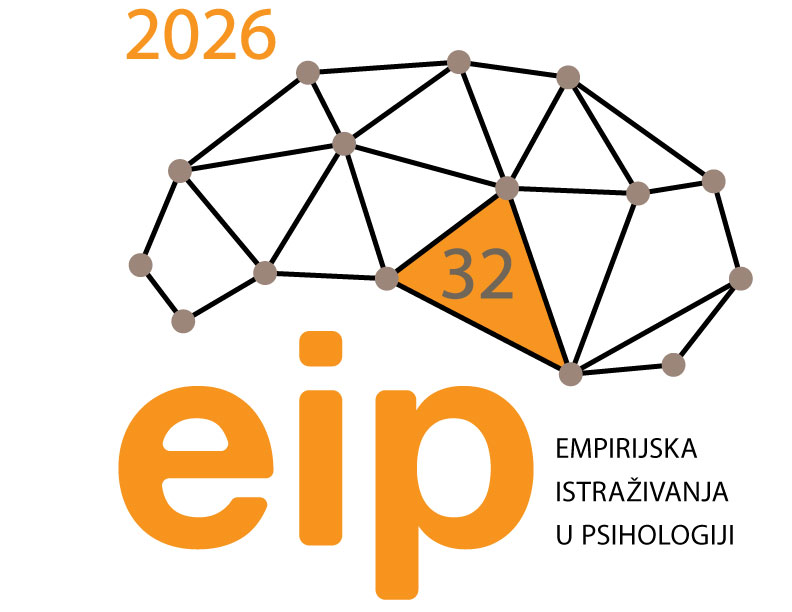FIGHTING THE SYSTEM: CHALLENGES TO DIVERSITY AND EQUALITY IN SOCIAL (AND OTHER) PSYCHOLOGY
Marija Branković
Institute for Philosophy and Social Theory and Faculty of Media and Communications, Belgrade, marija.brankovic@fmk.edu.rs
We must face this fact: psychology is not sufficiently equal and diverse. Recent studies highlight inequalities within the discipline of social psychology and structural disadvantages faced by researchers from, among others, the region of South and Eastern Europe (Bou Zeineddine, Saab, Lášticová, Kende, & Ayanian, 2021; Nyúl, Lantos, Reicher, & Kende, 2021). Building on these insights, we proposed a project supported by the European Association of Social Psychology that aims to establish and empower a network of social psychologists from ten countries within the region of South and East Europe (Bosnia & Herzegovina, Croatia, Czech Republic, Hungary, Kosovo, Romania, Serbia, Slovakia, Ukraine, Latvia). This symposium is meant to be a local meeting of social psychologists to identify the challenges and possible solutions – practices and resources that can help. We want to present some insights and experiences to stimulate a discussion with our colleagues.
In her talk, Bojana Bodroža will offer insights into the issue of how limited resources are a challenge to producing high-quality research and how these challenges can be overcome by relying on open-source practices and building international collaborations. Tijana Karić will discuss the challenges and opportunities for young researchers, as the early stage of their career is recognized as the turning point affecting the future international participation of researchers. Finally, Iris Žeželj will focus on examples of applicable practices aimed at increasing equality and diversity in the discipline that are overcoming the challenge of tokenism, such as inclusive editorial policies and fair crediting of co-authorship.
The ambition of this symposium is thus to share experiences and empower researchers in future efforts at international participation, aware of challenges and biases but also more aware of their strengths and the opportunities for collaboration within the region.
Keywords: social psychology, diversity, equality, publishing, international collaboration
This research was funded by the European Association of Social Psychology, extraordinary grant Social Psychology Ambassadors awarded to Marija Branković
(UN)AVAILABLE RESOURCES FOR SCIENTIFIC WORK AS THE MAIN OBSTACLE TO FOLLOWING CONTEMPORARY TRENDS IN (PSYCHOLOGICAL) SCIENCE
Bojana Bodroža
Department of psychology, Faculty of Philosophy, University of Novi Sad, bojana.bodroza@ff.uns.ac.rs
In an effort to follow the contemporary scientific trend, researchers from Southeast Europe encounter numerous difficulties, of which the language barrier is only the first and most visible. Most of these difficulties in following the trends are related to and arise from the (un)availability of resources for scientific work.
Unlike many other scientific disciplines, psychological science can produce certain research relying on minimal resources – in the first place, correlational research conducted online on convenient and readily available samples. However, relying predominantly on such research designs makes it more and more difficult to publish in the highest-ranked scientific journals. At the same time, inadequate financing of scientific and higher education institutions results in the difficult procurement of high technologies and software necessary for following contemporary scientific trends. A possible solution to this problem is open science practice, which is based on the idea of the democratization and availability of various research resources to everyone – from open data, research materials, analytical tools and codes, to publications. However, paying journal APCs hits researchers from poorer countries with limited resources for scientific work. These limitations result in reduced possibilities of publication in top journals and a lowered number of citations.
However, it should be pointed out that widely available modern technologies and the internet have opened up numerous opportunities for international cooperation through which researchers can build their competencies and cooperation networks. Therefore, a significant part of the responsibility for following contemporary trends in science lies with the researchers themselves.
Keywords: research resources, open science, publication bias
This work is not funded. As usual.
„WHEN I WAS YOUNGER, SO MUCH YOUNGER THAN TODAY…“: OPPORTUNITIES FOR EARLY RESEARCH CAREER BUILDING
Tijana Karić
Philipps University in Marburg, Germany | tijana.kariczoric@uni-marburg.de
On their path to integration into the wider research community, young researchers in the field of social psychology in Serbia face numerous obstacles from the very beginning of their careers. During the roundtable, I will present my experiences related to various aspects of my early career, which include research stays abroad, collaboration on international projects, engagement in professional organizations, receiving small grants, etc. I will also talk about all the obstacles I encountered and how I fought them – successfully or unsuccessfully. I would like to start a discussion about the opportunities available to young researchers, about ways to connect and improve careers in science, and about possible forms of support.
Keywords: social psychology, early career, international collaboration, research stays
EXAMPLES OF GOOD PRACTICES AIMED AT INCREASING EQUALITY IN SCIENTIFIC RESEARCH AND ACADEMIC PUBLISHING: HOW TO AVOID DIVERSITY BECOMING TOKENISM
Iris Žeželj
Psychology department, Faculty of Philosophy, University of Belgrade Univerzitet u Beogradu | izezelj@f.bg.ac.rs
Many practices introduced to increase equality in the academic community seem to be only performative – introduced for image purposes and not genuinely motivated so that its users could feel less adequate or exploited. Although I have witnessed a number of such situations in previous international research collaborations, international professional associations and academic journals’ editorial/review process, there were other positive examples. I will illustrate a number of positive practices such as fair crediting of co authorship in publications, testing inclusive organizational models for scientific conferences (diverse locations, more engagement of the local community, more linguistic diversity), editorial policies aimed at changing classical knowledge production patterns (from the composition of editorial boards to changing criteria of validating manuscripts), and attempts at decentralization of editorial role (by crowdsourcing topics, for example).
Keywords: social psychology, equality, diversity, practices
